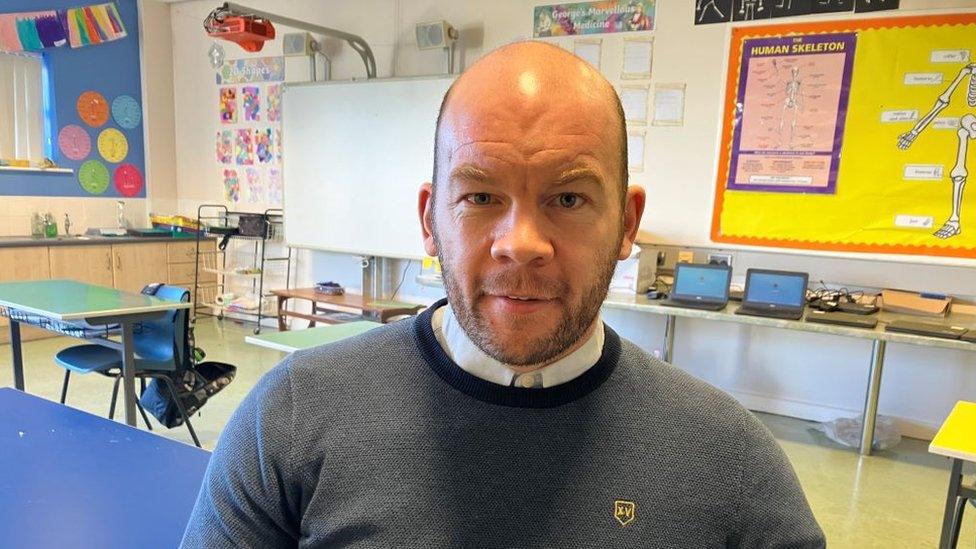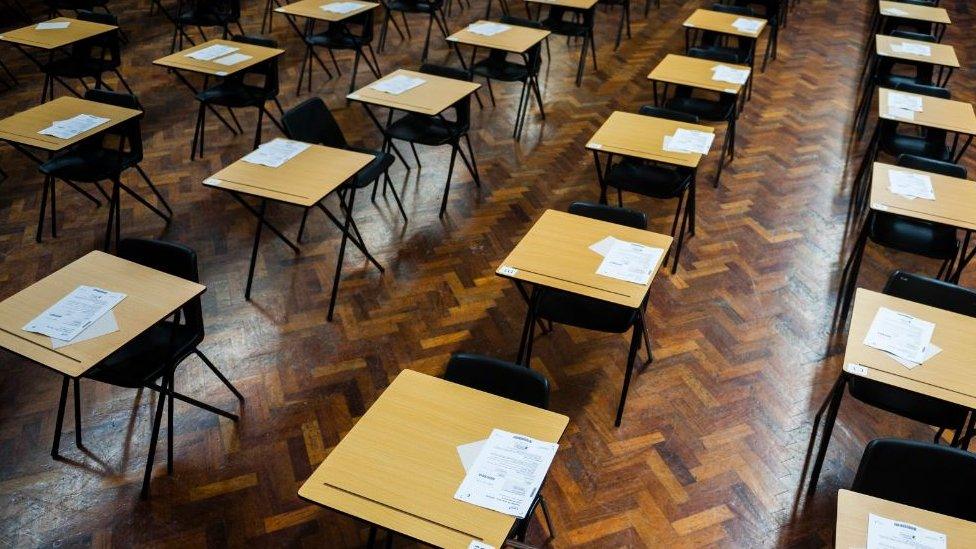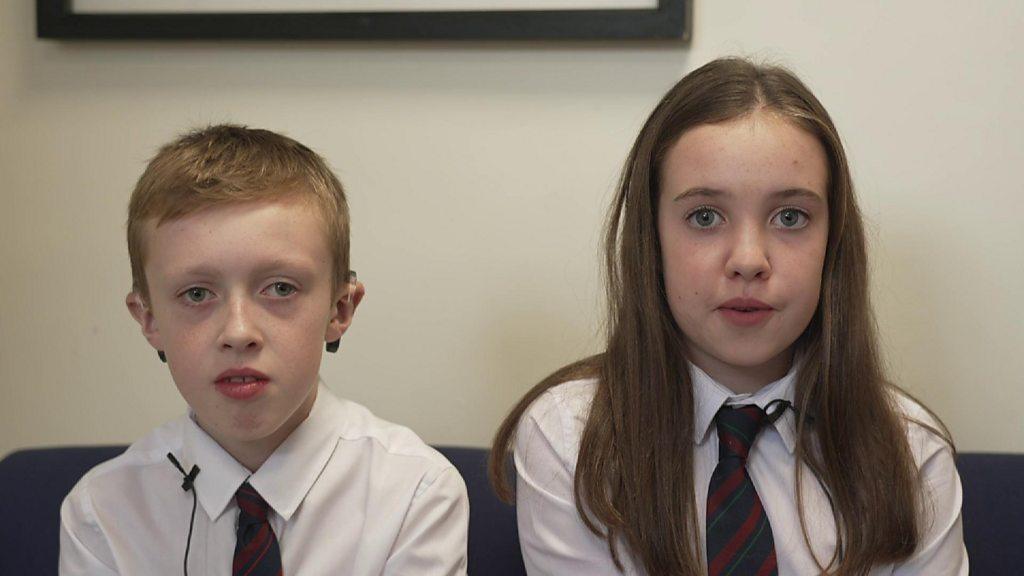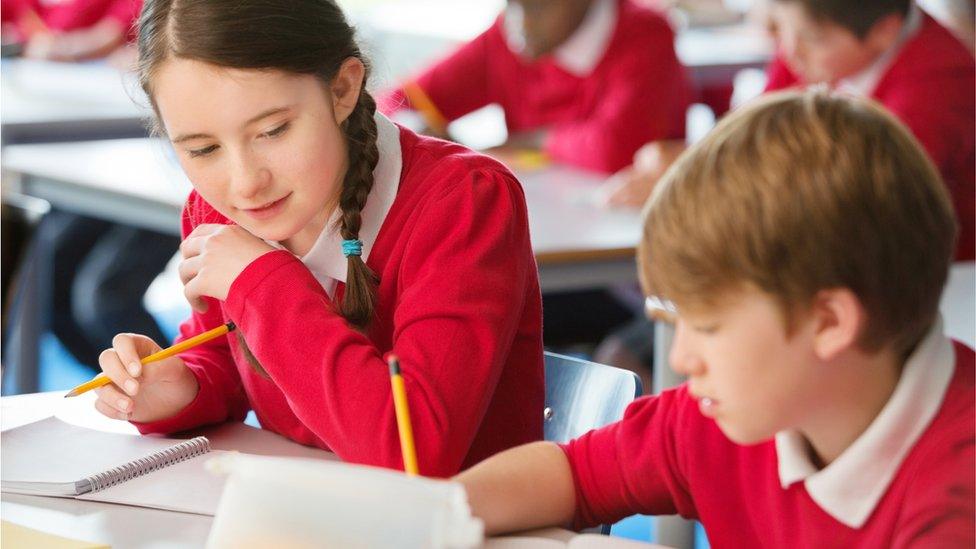Transfer test: Thousands of NI children receive results
- Published

These are the first results from the new common test which was sat for the first time last year
Thousands of P7 pupils in Northern Ireland have received their transfer test results later.
They were the first results received from the new common transfer test, run by a body called the Schools Entrance Assessment Group (SEAG), external.
The new examination replaced separate tests run by AQE and PPTC.
This was the biggest change to the post-primary transfer system since 2008 when the state run 11-plus test ended after about 60 years.
About 12,700 children sat the new common transfer tests, which were held on two Saturdays in November.
The results are being used by 63 schools - the vast majority of them grammars - across Northern Ireland to decide which pupils to admit.
For the first time, pupils were also able to view their results online via the SEAG website.
Speaking on Friday, Michael Carville, the chairman of SEAG and principal of Regent House School in Newtownards, said the organisation was confident its website would be able to cope with demand.
However, he told the BBC's Good Morning Ulster programme there were two alternative methods for getting results if there were any issues.
"Parents can email admin@seagni.co.uk and a team of people will be available to deal with their queries," he said.
Secondly, he added, most primary schools would also be open and available either in person or by phone to assist parents, as long as they had opted not to have the results shared with the school.
Mr Carville said the new process had successfully streamlined the transfer test from potentially five assessments to two.
He added that a small number of students, fewer than 50, had received estimated grades due to being unable to attend one of the assessments.
"We're quite confident in the estimated score that's being produced, so we think they will have a fair process," he said.

What is the new transfer test?
The new common transfer test was sat for the first time by pupils in Northern Ireland in November.
It was split over two one-hour test papers which had questions based on English or Irish and maths.
English and Irish were examined through multiple choice questions on spelling grammar and punctuation.
There was also a written comprehension test.
The maths part of the test was mainly made up of multiple-choice questions.


Principal Sean McVeigh believes the new system of two tests is more 'child-centred'
Speaking to BBC News NI, the principal of St Caolan's Primary School in Darragh Cross, County Down, said the new system was more "child-centred".
"Last year they were sitting AQE or GL and depending on which they did, they could only apply to a certain number of academically-selective schools," Sean McVeigh said.
"This year by by sitting the single entrance test, all children in P7 can have the opportunity to enter any academically selective school."
Mr McVeigh said the test naturally brought up anxiety, which was hard to prevent.
"Every child from P1 to P7 is very aware when the big tests are coming up," he said.
"They don't necessarily know what these tests are but they know there are big results coming up and our P7s are definitely feeling the pressure of this test.
"So much so that here in the school we have sat and drawn up an action plan for all the children - to deal with anxiety, to build confidence and resilience."
Despite the change to the transfer test, there remains ongoing debate about academic selection at the age of 11.
For instance, a paper from Queen's University Belfast published in 2022 claimed academic selection perpetuated division in wider society in Northern Ireland and "disadvantages the already most disadvantaged".
Related topics
- Published11 November 2022

- Published10 November 2023

- Published11 November 2023
